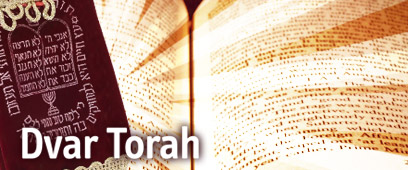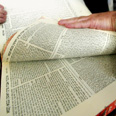

Torah
Photo: Ata Awisat
The Torah challenges each generation to inhale the spirit of the Lord that hovers of the text, but the words themselves are written by humans in human language. Sometimes, it is difficult to distinguish a Heavenly messenger from a self-appointed one – between a true and a false prophet, and between the voice of God and the prophet’s own voice. And we may even wonder whether the messenger always knows the difference.
We are all tested when we perceive injustice, illogic or inconsistency in the way that God disburses rewards and punishments – wealth and poverty, joy and suffering, life and death. Abraham is faced with several such tests in regard to God’s justice. Over and over again, Abraham’s heart must cry out “Shall not the Judge of all the earth deal justly?”
Some examples:
- Abraham puts himself at risk in a daring pursuit of the four kings (Genesis 14) who have taken Lot captive. Captives from Sodom are freed together with Lot. Although Abraham set out to war because of his nephew’s capture, his altruism is revealed when he turns down the King of Sodom’s offer of a reward. Up until this point, Abraham could say to himself: I freed the captives with no thought of reward. But then, when God informs him of the impending destruction of Sodom, might not Abraham say: It was all for nothing. God is going to destroy all that I rescued, including Lot!
- Abraham embarks upon an extended negotiation with God in the hope of saving Sodom for the few “righteous” citizens of the city, only to receive the very general promise “I will not destroy, for the sake of the ten.” But he did not get the promise that he seems to have sought, the promise that God would rescue Lot, the one righteous man in Sodom. God does save Lot (after Lot successfully passes a test), but God conceals the rescue of Lot and his daughters from Abraham. Lot flees Sodom at night. When Abraham looks out at Sodom the following morning, the area lies behind a curtain of smoke. Did he receive word of Lot’s rescue? Our doubt in this regard is twofold. First, following the destruction of Sodom, Abraham travels south to Beer Sheba and the land of Gerar. Second, it would appear from the names of his sons/grandsons Ammon and Moab, that after leaving the cave, Lot traveled east of the Jordan, so that the geographical distance between Abraham and Lot increased. Moreover, at the end of the parasha (22:20-23), Abraham is told of the birth of sons to his brother Nahor in far-off Haran, yet there is not a word about Lot. Perhaps we may infer that Abraham was never told that Lot’s daughters bore him sons, and that Abraham went to his grave believing that Lot and his family were destroyed with their neighbors in Sodom.
- The birth of Isaac compensates Abraham and Sarah for years of waiting for the fulfillment of the Divine promise, and “rehabilitates” God’s image as one who rewards his faithful. But shortly thereafter, Sarah demands that Abraham cast out Hagar and his son, Ishmael. Although it appears wrong to Abraham, God supports Sarah’s decision, and Abraham is forced to carry out the cruel decree. Although God promises, “as for the son of the slave-woman, I will make a nation of him,” the Bible never even hints that Abraham ever learns of his son’s fate.
When Abraham nearly despairs of comprehending God’s ways as “Judge of all the earth,” he receives the worst command of all: “Take your son, your favored one, Isaac, whom you love, and go to the land of Moriah, and offer him there as a burnt offering on one of the heights that I will point out to you” (Genesis 22:2). Abraham’s accumulated experience may explain why, this time, he does not try to argue with God in an attempt to change the harsh decree.
Abraham is a perfect example of a certain kind of believer, of the kind of believer who succeeds in maintaining a balance between the need of an explanation for the injustice of the death of the innocent, and the demand for the fulfillment of promises, on the one hand, and the recognition of the point where one must accept God’s judgment, even when it appears immoral and arbitrary, in the knowledge that God’s view is wider and more comprehensive than the perspective of any mortal.
Rabbi Gil Nativ, rabbi of the Eshel Avraham Congregation, Beer Sheba. Courtesy of Schechter Rabbinical Seminary in the Schechter Institute of Jewish Studies.















